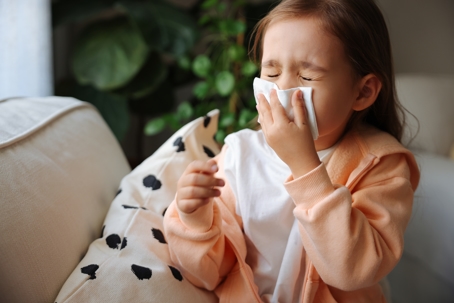Allergies can be a significant discomfort in our day-to-day lives, and it's a battle many of us face with the changing seasons or even year-round. While medications can provide relief, did you know your HVAC system can be a potent ally in your fight against allergens? Here's how your Heating, Ventilation, and Air Conditioning (HVAC) system can help you breathe easier and reduce allergy symptoms.
1. Regular Replacement of Air Filters
One of the simplest yet most effective ways your HVAC can help with allergies is by regularly replacing air filters. Air filters trap pollen, dust mites, pet dander, and other allergens, preventing them from circulating through your home.
Key Takeaways:
- Change Filters Regularly: Experts recommend changing the air filters every 30-90 days, depending on usage and type of filter.
- Choose High-Efficiency Filters: Opt for HEPA filters or those with a Minimum Efficiency Reporting Value (MERV) rating of 13 or higher for trapping smaller particles.
2. Upgrading to HEPA Filters
HEPA (High-Efficiency Particulate Air) filters are designed to capture a minimum of 99.97% of airborne particles, significantly reducing the quantity of allergens in your indoor air.
Key Takeaways:
- Certified Efficiency: Look for true HEPA filters instead of "HEPA-like" filters for optimal performance.
- Compatibility Check: Ensure your HVAC system is compatible with HEPA filters before upgrading.
3. Adding Air Purifiers to Your System
Air purifiers work alongside your HVAC system to further cleanse the air by removing allergens and contaminants. Whole-home air purifiers can be installed within the HVAC system itself.
Key Takeaways:
- Targeted Filtration: Air purifiers can target various allergens, including mold spores and smoke particles.
- UV Purifiers: Some air purifiers utilize UV light to kill airborne pathogens and allergens for added protection.
4. Scheduled HVAC Maintenance
Regular HVAC system maintenance can significantly reduce allergies by ensuring that your system is clean and functioning optimally, thus improving indoor air quality.
Key Takeaways:
- Professional Inspections: Schedule professional HVAC inspections at least once a year.
- DIY Maintenance: Engage in simple maintenance tasks like cleaning vents and inspecting ductwork for any signs of mold.
5. Implementing Humidity Control
Balancing indoor humidity levels can prevent the growth of mold and dust mites, both of which are common allergens. HVAC systems with built-in humidifiers or dehumidifiers can be extremely beneficial.
Key Takeaways:
- Ideal Humidity Levels: Aim to keep indoor humidity levels between 30%-50%.
- Smart Thermostats: Utilize smart thermostats that can monitor and adjust humidity levels automatically.
6. Sealing Ductwork
Leaky ductwork can introduce outdoor allergens into your home. Proper sealing and insulation of ducts ensure that allergens are kept at bay.
Key Takeaways:
- Energy Efficiency: Sealed and insulated ducts also improve the energy efficiency of your HVAC system.
- Professional Duct Sealing: Consider hiring a professional to inspect and seal your ductwork for maximum benefit.
HVAC Specialists Serving Oklahoma, McLain, Cleveland, Canadian, and Grady Counties
To enhance your home's defense against allergens and create a more comfortable living space, remember that Arthur's Air Conditioning and Heating is your partner in achieving these goals. With their expertise in HVAC systems, air quality solutions, and commitment to customer satisfaction, they are equipped to provide the services and advice you need. Don't let allergies control your life; take action and contact us today at (405) 302-8225 to find out how they can help you breathe easier and live better.

